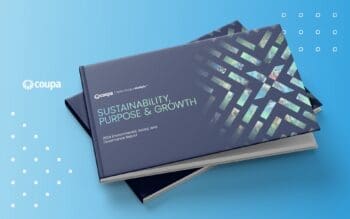ESG
Incorporating Environmental, Social, and Governance factors into financial decisions leads to sustainable and ethical investment strategies and operations.

Environmental, Social, and Governance (ESG) criteria represent a set of standards used to evaluate a company’s operations, guiding financial professionals in screening potential investments. Integrating ESG criteria into business decisions fosters sustainable and ethical investment strategies.
The impact of Finance Automation on ESG
Finance process automation leverages technology to execute financial tasks with minimal human involvement.
By automating finance processes, companies can efficiently collect, process, and analyze ESG data, facilitating compliance with ESG standards and empowering investors to make well-informed decisions.

Finance process automation is transforming the way ESG factors are integrated into financial decision-making, leading to more sustainable and ethical investment practices.

Challenges and solutions in ESG Automation
Quality of data
One of the primary challenges in ESG automation is the quality and availability of data. Inconsistent and incomplete ESG data can hinder accurate analysis and reporting. To address this, implementing standardized data collection and reporting protocols is essential. These standards ensure that data is consistent, comprehensive, and comparable across different organizations and industries, enabling more reliable ESG assessments.
Compatibility
Another significant challenge is the integration of ESG automation systems with existing legacy systems. Compatibility issues often arise, making it difficult to seamlessly incorporate new technologies. This can be mitigated by using middleware and APIs, which act as bridges between old and new systems, facilitating smooth data flow and interoperability without overhauling the entire IT infrastructure.
Regulatory compliance
Regulatory compliance presents an ongoing challenge due to the constantly evolving nature of ESG regulations. Keeping up with these changes can be resource-intensive and complex. Utilizing Artificial Intelligence (AI) for automated updates and compliance checks offers an effective solution. AI can continuously monitor regulatory changes and adjust internal processes accordingly, ensuring that organizations remain compliant with the latest ESG requirements without the need for manual intervention.








